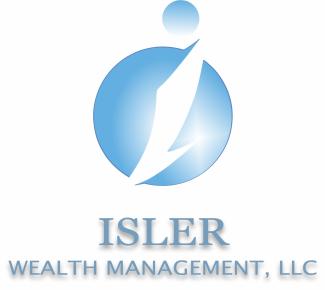Financial Planning
Whether it’s owning your own home, funding your children’s education, or creating a stress-free retirement, a financial plan is considered vital in working towards your goals. A well-grounded and effective plan goes beyond the realm of saving, budgeting, and investing. It also considers other elements of your financial picture, including insurance planning, tax planning, retirement planning, estate planning, and much more.
By understanding the role of financial planning in meeting your short, intermediate, and long-term financial aspirations, you'll be better equipped to control your financial future.
Our Approach to Financial Planning
- Discovering You: Our process begins with a consultative discovery meeting designed to learn more about you and your goals. This is also an opportunity for you to learn more about what we do, and see if we’re a good fit for your needs.
- Strategy Planning: Once we learn who you are, we'll start developing your personalized plan. Through our strategy-building process, we’ll create a set of personalized plans – for the short, intermediate, and long-term – that aim to fulfill your overall financial strategy. We use a consultative and iterative approach, so each session brings us closer to the financial objectives we set together.
- Implementation: Whether it’s making the right investment decisions, choosing the right insurance plan for you and your family, saving to reach your retirement goals, or creating an estate plan that preserves your legacy; our financial professionals will be right there by your side as you take each step. Through foresight, encouragement, and professionalism, we’ll make sure each step of your plan is implemented.
- Review and Support: We’ll laud you at every successful implementation of your financial plan, and help you stay on track to meet your objectives. Through plan reviews, we’ll consult with you and make modifications to your strategies and plans as needed.
Book an initial consultation with one of our financial professionals to create your personalized financial plan.
Estate Planning
If you wish to leave behind a meaningful legacy, be it for loved ones or a charitable institution, you need to put a well-thought-out estate plan in place. Without an established plan, the fate of your estate could be determined by the government, lawyers, or people that don’t have your interests and best wishes in mind.
Having an estate plan is paramount in ensuring your estate is handled according to your wishes. Together with your estate planning attorney, we can assist in drafting documents and reviewing your situation so your estate benefits the people and charities you care about most.
What We Can Do For You
- Will education: We can help you understand how to structure your will so your legal team can create a document that reflects how you want your estate disposed of and distributed. From a simple will to a testamentary will, or joint wills and living wills – our team will help you navigate the complexities of this document so you won’t need to stress over specifics.
- Choosing executors: The executors of your estate wield strong powers that determine how your estate is handled upon your passing. We’ll help you understand the importance of choosing an executor(s) for your estate, and what criteria you should consider when appointing someone to discharge this all-important role – especially if minor children/guardians are involved.
- Designating beneficiaries: If you don’t choose beneficiaries for your assets carefully, your estate assets might end up in the hands of individuals that you never intended should benefit from them. A well-thought-out estate plan ensures the needs of your dependents are taken care of.
- Minimizing estate taxes and probate fees: Taxes, fees, and other levies have the potential to erode a large part of your estate before your beneficiaries see a cent. Careful planning can reduce the impact taxes and fees may have.
- Estate protection: Even after you pass, many of your assets – such as long-term investments and property – will likely need protection and management until they are disposed of and their proceeds are distributed to your beneficiaries. In the absence of an estate plan, your assets will likely not receive the type and level of protection those assets require.
- Distribute your legacy: Our professionals can support you in synchronizing your estate plans and your will, so your assets are distributed in line with your final wishes.
Schedule a meeting with us to see what an estate plan can do for you.
Our firm does not provide legal advice or services. Please consult your legal advisor or an estate planning attorney regarding your specific situation.
Tax Planning
It’s said that only two things are certain in life: Death…and Taxes! And while there’s not much you can do to avoid the former, with prudent planning and foresight, there’s a lot you can do to minimize the latter. However, similar to planning that goes into living a happy and fruitful life, a well-planned tax strategy can yield great benefits – but only if it’s done professionally, and earlier on during your wealth accumulation cycle.
Our Tax Planning philosophy is not centred on tax avoidance, but rather on helping you structure your finances, so you and your family aren’t overburdened by undue tax liability.
Why Tax Planning Is Important
Consider this fact: If you managed to shave off just $250 from your tax bill each year, through prudent Tax Planning, and invested it at a 5% rate of return annually, you could have a tidy sum of over $15,250 waiting for you by the time you retire in 30 years!
Delayed tax planning is tantamount to leaving potentially saveable dollars, of your hard-earned money, on the tax table for others to benefit from. The longer you defer tax planning, the more money you’ll end up owing and paying in taxes. That money could potentially have been saved, through a reduced tax bill, invested, and grown, through the magic of compounding, over many years.
What We Can Do for You
We help our clients through long-term Tax Planning strategies – and that’s exactly how we’ll help you. Tax planning does not commence on the date of filing your tax returns. Prudent tax planning often starts long before – sometimes even before you make investment decisions that trigger a tax liability. We can help devise tax planning strategies that minimize taxes, maximize tax refunds and guide you to optimize your tax-friendly investment returns.
Here’s what we can do for you through our Tax Planning service:
- While the best advice you can get is: Save. Save. Save…as much as you can. The next best advice is: Be careful how you invest those savings. Our Tax Planning advice will include considerations on whether you should invest with pre-tax dollars, or post-tax income. How you invest, and in what types of vehicles, can make a significant difference to the taxes you pay. Our Tax specialists can help you navigate through the various advantages and disadvantages of choosing one strategy over another.
- When planning for tax impact on your income, we’ll also plan for the types of income that you might receive: Dividends, Interest, Annuity payments, Capital Gains, Inheritances, Employer or Government benefits. While all of these are potential income streams in retirement and before, each has different tax planning implications.
- Our tax specialists will help you foresee impacts to your future net wealth. If left unplanned, your net wealth could be diminished due to likely claw-backs to benefits, and the possibility of erosion to your estate through substantial taxes.
- We’ll help you mitigate possible tax impacts when it comes to your estate. A good tax plan will ensure that future generations do not bear the burden of taxes due to the legacy you leave them. But to ensure a tax-advantage inheritance to your beneficiaries, you need to put appropriate plans in place NOW – and that’s where our Tax Planning specialists can help.
Contact us today to learn more about tax planning.
Retirement Planning
Everything you do – from planning the education and designations you'd like to acquire, to starting a career& and managing your career progression – is done in the hopes that you and your loved ones can have a better life. But in all your planning, have you remembered to plan for life after work?
If you fail to plan for life after work, all the effort you’ve put into your working life may be jeopardized, and you may be left with more questions than answers. And an ill-prepared retirement is bound to be one filled with financial stress and chaos, instead of life-enriching experiences and freedom.
How We Can Help
Retirement planning shouldn’t start at retirement; it should start well before. We take a long-term view of your financial wellbeing to help create a life after work that is as well-planned as your life while working.
- Understand your goals: Through an intensely personalized approach, we discover what your retirement goals are. Whether it’s travel, a new hobby, or spending more time with the people you love, we’ll help you strive for your ideal retirement.
- Analyze your current position: To plan a meaningful retirement, you need to know where you currently stand. We’ll help you build an in-depth financial inventory to use as part of our retirement planning process.
- Develop your plan: We’ll work with you to create a retirement plan that aims to address them. When we’re done, you’ll not only have a better understanding of your investments, and what you need to fund your retirement lifestyle, you’ll also be better equipped to handle any shortfalls.
- Implement your plan: As you move closer to retirement, we’ll work with you to ensure the plans are implemented in a phased and orderly manner. The goal of our retirement planning approach is to make your transition to retirement as seamless and stress-free as possible.
- Support you in pension and benefit decisions: We’ll be here if you need advice on Government or Employer pension and benefits: when to apply, how to apply, what to do with your funds, and much more.
- Partner with you in retirement and beyond: A long and fulfilling retirement takes multiple facets of your financial picture into consideration: health care, long-term care, insurance, legacy planning, and charitable giving. Our financial professionals will be here for you when you need advice in any of these areas.
- Provide ongoing reviews: We’ll continue to review your retirement plans, and consult with you about any changes or updates needed to address your evolving retirement lifestyle needs.
Ready to take the first step in creating your plan for life after work?
Charitable Giving
Everyone has their own reason for gifting their assets or a portion of their income to charitable organizations. Some find comfort in helping others who are less fortunate, while others simply want to share their good fortune. Many of the institutions of art, sciences and education are supported in large part by those who want to give something back in appreciation for their contributions to the community or the individuals themselves.
Presently, the tax code offers incentives for gifting of one’s assets or incomes. Tax deductions are given for current contributions and, for estate owners, charitable gifts can reduce the size of the estate to help minimize estate taxes.
Often times, an individual will designate a charitable beneficiary in their will to benefit the organization after the individual dies. By using charitable gifting techniques, a donor may be able to benefit the charity while living without having to sacrifice the income that an asset can generate. Understanding how properly structured charitable gifts can provide current benefits for both the donor and the charity could be important for the charitably inclined.
Charitable Remainder Trust
A remainder trust enables the donor to transfer an asset while retaining the right to the income it generates. The asset becomes the “remainder” which is owned by the charity. Remainder trusts, if properly structured, can qualify for a current tax deduction. There are three types of remainder trusts:
Unitrust: A unitrust the income the donor receives is based on a percentage of the current fair market valuation of a trust asset. Each year, as the asset is valued, the income is adjusted based on the new valuation.
Annuity Trust: Instead of a percentage of the asset value, the donor is paid a fixed amount annually.
Pooled Income Fund: Donors can pool their donated assets in a fund that is operated by the charitable organization. The donors then receive a proportionate share of income from the fund that is paid throughout their lifetime. Payments can vary each year based on the valuation of the underlying assets in the fund.
Charitable Lead Trust
Also known as an Income Trust this vehicle transfers the income rights to the charitable organization. Generally, the income rights are assigned for a specified period of time after which the remainder passes to the donor.
Charitable planning involves tax issues that should be discussed with a qualified tax or financial professional.
For more information of charitable planning, please contact us today.
Retirement Savings Accounts
When you are young and just starting a professional life, retirement might be the last thing on your mind. However, if you ask any retired person, or someone entering retirement, what advice they would give you about planning for that day, chances are they’ll say: Start as soon as you can!
Why Retirement Savings Accounts Are Important
The best way to assure you have a comfortable retirement, is to select a retirement savings account/s that matches your retirement objectives – and start saving as much and as frequently as you can! Without such accounts to help you, or with the wrong type of savings accounts, you’ll likely find it extremely hard to meet your retirement savings goals.
What We Can Do for You
As you start planning to save for retirement, you’ll likely have many questions that you need answered:
- When should I start saving?
- How much should I save?
- How much will I need for a “comfortable” retirement?
- What’s the best vehicle for me to save for my golden years?
- Which “pot” of retirement savings should I tap into first?
Our Retirement Savings specialists will help address all of your questions. We’ll also help you make informed decisions about which types of savings vehicles are right to meet your particular retirement goals. Not all retirement savings accounts are designed the same. For instance, some have yearly maximum contribution limits, and others have planned distribution criteria associated with them. Violation of those rules can lead to IRS-imposed premature withdrawal penalties.
Our Retirement Savings Account specialists will help you navigate the plethora of saving options available to you, some of which include:
-
Individual Retirement Account (IRA): This is the most commonly used savings account available to most Americans saving for their retirement. Where a company-sponsored retirement plan isn’t available, IRAs can be used as a way for tax-deferred savings. Over the period while you work, tax-deductible “contributions”, up to an eligible amount, can be made into the account. You only pay taxes when you withdraw funds in retirement.
Some IRA’s have contribution limitations and tax consequences for early withdrawals. Distributions from traditional IRA’s and employer sponsored retirement plans are taxed as ordinary income and, if take prior to reaching age 59 ½, may be subject to an additional 10% IRS tax penalty. Converting from a For complete details consult your tax advisor or attorney.
-
Roth IRA Account: Roth IRAs differ somewhat from traditional IRAs – which allows for tax-deferred growth of retirement savings - in that the money deposited into these accounts is from “after-tax” dollars. Subsequently, when you make withdrawals from your Roth account, you are not taxed. Additionally, your savings within the account also grow tax-free.
To qualify for the the tax-free and penalty-free withdrawal or earnings, a Roth IRA must be in place for at least five tax years, and the distribution must take place after age 59 ½ or due to death, disability, or a first time home purchase (up to a $10,000 lifetime maximum). Depending on state law, Roth IRA distributions may be subject to state taxes.
-
Simplified Employee Pension (SEP) IRA: Some employees may have access to employer-sponsored SEP-IRA accounts. These are similar to traditional IRAs, and may sometimes use Annuities as a retirement savings vehicle.
-
Savings Incentive Match Plan for Employees (SIMPLE) IRA: This is yet another retirement saving plan available to working Americans saving for their retirement. SIMPLE-IRA plans mandate an employer-matched contribution, and are ideal for smaller business (less than 100 employees).
-
Traditional 401(k) or Roth 401(k) plans: Like individual and Roth IRAs, employers can offer staff traditional 401(k) plans or Roth 401(k) plans to their employees. In some cases, for instance where an employer matches 100% of your contribution to these retirement savings accounts, it might make sense to join the plan. However, the funds are invested at the discretion of the fund manager, and you (the employee) might have no say in those decisions. We’ll help you decide whether you should participate or opt out of these plans.
-
Value-added services: We’ll not only help you choose the right retirement savings accounts for you, but we’ll ensure they are the most cost-effective and tax-advantaged for your particular situation. If you switch jobs, we’ll also advise you on whether it makes sense to Rollover, Stay, Move or Cash out from an employer-sponsored retirement savings plan.
Contact us today to learn more about retirement savings accounts.
Capital Gains Reduction & Tax Strategies
Tax Aware Separately Managed Account Capital Management:
Flex Separately Managed Account (SMA) Equity strategies designed to diversify, grow and preserve client wealth by reducing taxes.
When you are looking to sell a business, commercial property or have any other Capital Gains event, Isler Wealth Management can offer solutions. Whether you would like to defer a real estate gain into another building with a 1031 exchange, setup a lifetime annuity and give to charity at the end through a charitable remainder trust, or retain the sales proceeds in a brokerage account for you to access at your discretion; we have solutions.
In the most exciting tax strategy seen in a long time, Isler Wealth Management and Buckingham Strategic Partners have partnered with Fidelity Investments and their partners, to provide an alternative strategy that takes advantage of broad equity market returns while deferring capital gains and realizing capital losses where possible.







